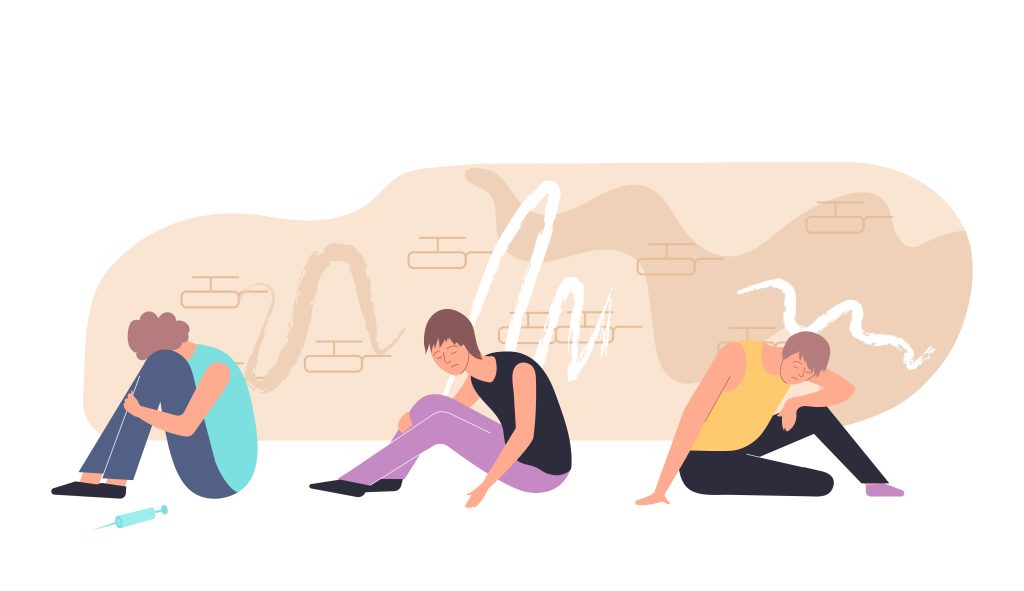
Unraveling the Connection: Trauma and Addiction in Lake Forest
In the serene community of Lake Forest, a silent struggle often unfolds behind closed doors—a struggle that intertwines the threads of trauma and addiction. This intricate connection is a pervasive challenge that affects individuals and families, disrupting lives and leaving a profound impact. Understanding this link is crucial for both those in need of support and the organizations dedicated to guiding them on the path to recovery. In the heart of Lake Forest, Mission Recovery Home emerges as a beacon of hope, shedding light on the intricate relationship between trauma and addiction.
The Hidden Tapestry of Trauma and Addiction
Trauma, often buried deep within the recesses of one’s psyche, can manifest in myriad ways. It may stem from experiences such as abuse, loss, or overwhelming life events, casting a long shadow on an individual’s emotional well-being. Coping with such trauma can lead some to turn to substances as a means of self-medication—a temporary escape from the pain and distress that trauma leaves in its wake.
The link between trauma and addiction is complex, creating a cycle that can be challenging to break. Addiction serves as a coping mechanism, albeit an unhealthy one, providing a temporary respite from the emotional turmoil associated with trauma. However, this relief is short-lived, and the spiral into substance dependence can deepen, exacerbating the impact of both trauma and addiction.

Mission Recovery Home: A Haven for Healing
In the heart of Lake Forest, Mission Recovery Home stands as a testament to the commitment of aiding individuals in their journey towards recovery. Understanding the intricate connection between trauma and addiction, the compassionate team at Mission Recovery Home employs a holistic approach to address the root causes of substance abuse.
Holistic Healing
Mission Recovery Home recognizes that overcoming addiction requires more than just addressing the surface-level symptoms. By delving into the underlying trauma, they provide a safe and supportive environment for individuals to confront their past, fostering a sense of empowerment and resilience.
Therapeutic Interventions
Tailored therapeutic interventions play a pivotal role at Mission Recovery Home. Through evidence-based therapies, individuals are guided to explore and understand the impact of trauma on their lives. From individual counseling to group therapy sessions, the comprehensive approach aims to heal the wounds that fuel addiction.
Community Support
Breaking free from the cycle of trauma and addiction often requires a supportive community. Mission Recovery Home fosters a sense of belonging and understanding, ensuring that individuals feel heard and validated in their struggles. Building connections with fellow residents creates a network of support that extends beyond the walls of the recovery home.

Breaking the Chains: A Personalized Recovery Journey
At Mission Recovery Home, the journey to recovery is seen as a unique and personalized experience. Recognizing that each individual’s story is distinct, the programs offered are tailored to address the specific needs of residents. Through a combination of therapeutic modalities, educational resources, and life skills training, Mission Recovery Home equips individuals with the tools needed to rebuild their lives.
Contact Mission Recovery Home Today
If you or a loved one is grappling with the profound connection between trauma and addiction in Lake Forest, reach out to Mission Recovery Home. Their dedicated team is committed to guiding individuals towards healing, recovery, and a brighter future. Take the first step on the path to recovery—contact Mission Recovery Home today and embark on a journey of transformation, breaking free from the chains of trauma and addiction. Your story of healing awaits, and Mission Recovery Home is here to support you every step of the way.
FAQ’s
- Q: How does trauma contribute to addiction?
- A: Trauma can lead to overwhelming emotional distress, and individuals may turn to substances as a way to cope. This coping mechanism can evolve into addiction, where substances are used to numb or escape from traumatic memories and feelings.
- Q: Can addiction treatment at Mission Recovery Home address trauma issues?
- A: Absolutely. Mission Recovery Home employs a holistic approach to addiction treatment, recognizing the profound impact of trauma. Our programs incorporate therapeutic interventions to address underlying trauma and support long-term recovery.
- Q: What types of trauma are commonly linked to addiction?
- A: Various types of trauma, including physical, emotional, or sexual abuse, accidents, or loss, can contribute to addiction. It’s essential to identify and address the specific trauma experienced by an individual to tailor an effective treatment plan.
- Q: Is trauma-focused therapy a part of the addiction treatment process at Mission Recovery Home?
- A: Yes, trauma-focused therapy is an integral component of our addiction treatment programs. Our experienced therapists use evidence-based modalities to help individuals process and heal from trauma, fostering sustainable recovery.
- Q: How can I determine if trauma is a factor in my addiction?
- A: If you’ve experienced distressing events and find yourself relying on substances to cope, trauma may be a contributing factor. Seeking professional assessment and guidance, available at Mission Recovery Home, can help uncover underlying issues.
- Q: Can trauma-focused therapy be beneficial for those with substance use disorders?
- A: Absolutely. Trauma-focused therapy addresses the root causes of addiction, helping individuals develop healthier coping mechanisms. It is particularly effective in preventing relapse and promoting overall mental and emotional well-being.
- Q: Are there specific programs at Mission Recovery Home for individuals with co-occurring trauma and addiction?
- A: Yes, our programs are designed to address co-occurring disorders, including trauma and addiction. Our multidisciplinary approach ensures that individuals receive comprehensive care tailored to their unique needs.
- Q: How does Mission Recovery Home support individuals in building resilience after trauma?
- A: Building resilience after trauma is a gradual process. Our programs focus on empowering individuals through therapy, support groups, and skill-building exercises. We aim to equip them with the tools needed to navigate life’s challenges without resorting to substance use.
- Q: Can trauma-informed care make a difference in addiction recovery?
- A: Absolutely. Trauma-informed care recognizes the widespread impact of trauma and ensures that individuals feel safe and supported throughout their recovery journey. It enhances the effectiveness of addiction treatment by addressing the root causes of substance use.
- Q: Is trauma-focused therapy only for those with severe trauma experiences?
- A: No, trauma-focused therapy can be beneficial for individuals who have experienced various levels of trauma. It is tailored to individual needs, and even seemingly less severe traumas can significantly impact mental health and addiction.







